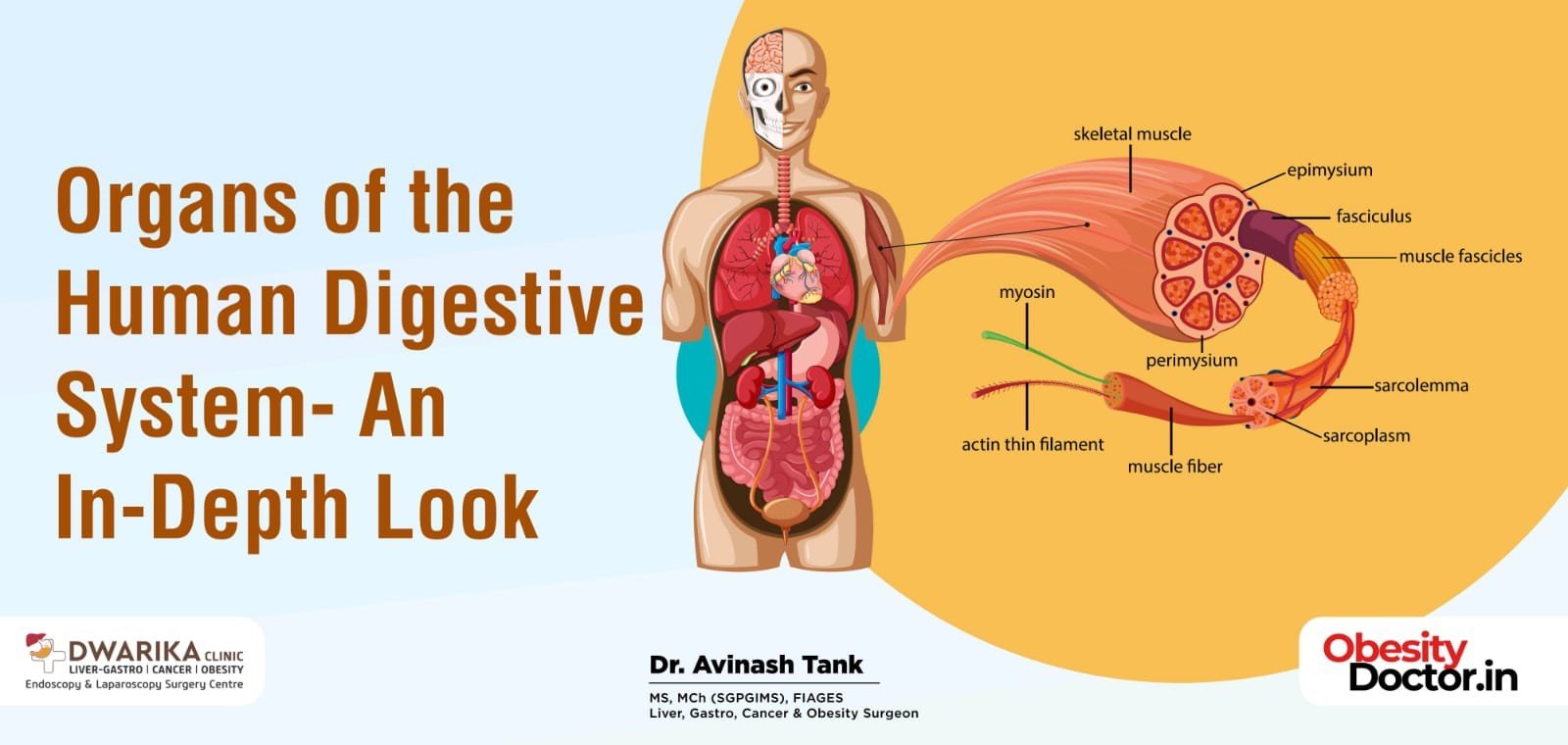
Reading Time: 3 minutes
Organs of the Human Digestive System- An In-Depth Look

Introduction
The digestive system is a complex network of organs responsible for breaking down food, absorbing nutrients, and eliminating waste from the body. Understanding the organs involved in this vital process is key to appreciating the intricate mechanisms of digestion. In this article, we will delve into the organs of the digestive system, their functions, and how they work together to support our overall health and well-being.
Mouth
The journey of digestion begins in the mouth. The mouth is equipped with teeth for chewing and salivary glands that produce saliva to moisten food and initiate the process of digestion. Enzymes in saliva begin breaking down carbohydrates.
Esophagus
The esophagus is a muscular tube connecting the mouth to the stomach. It transports food from the mouth to the stomach through coordinated muscular contractions called peristalsis.
Stomach
The stomach is a sac-like organ where further digestion takes place. It churns and mixes food with gastric juices, including hydrochloric acid and enzymes, to break down proteins and kill harmful bacteria. The stomach also releases partially digested food, known as chyme, into the small intestine.
Small Intestine
The small intestine is a long, coiled tube where most of the nutrient absorption occurs. It consists of three parts: the duodenum, jejunum, and ileum. The inner lining of the small intestine is covered with tiny finger-like projections called villi, which greatly increase the surface area for nutrient absorption into the bloodstream.
Large Intestine (Colon)
The large intestine, also known as the colon, absorbs water and electrolytes from the remaining undigested food, forming feces. It houses beneficial bacteria that aid in the breakdown of certain substances and the production of vitamins. The colon also plays a role in the storage and elimination of waste.
Rectum
The rectum is the final section of the digestive tract, responsible for temporary storage of feces before they are expelled through the anus.
Anus
The anus is the external opening through which feces are eliminated from the body.
Accessory Digestive Organs:
Liver
The liver is the largest internal organ and performs multiple functions related to digestion. It produces bile, a substance essential for the breakdown and absorption of fats. The liver also metabolizes nutrients, detoxifies harmful substances, and stores vitamins and glycogen.
Gallbladder
The gallbladder is a small organ located beneath the liver. It stores and concentrates bile produced by the liver and releases it into the small intestine to aid in the digestion of fats.
Pancreas
The pancreas is both an endocrine and exocrine organ. As an exocrine gland, it secretes digestive enzymes into the small intestine to break down carbohydrates, proteins, and fats. The pancreas also produces insulin and glucagon, hormones involved in regulating blood sugar levels.
Conclusion
The digestive system consists of a series of organs that work harmoniously to facilitate the digestion and absorption of nutrients, ensuring our overall well-being. From the mouth, where digestion begins, to the small intestine, where nutrients are absorbed, and the large intestine, where water is reabsorbed, each organ plays a crucial role. The accessory organs, including the liver, gallbladder, and pancreas, provide essential support in the digestive process. By understanding the functions and interconnections of these organs, we can appreciate the remarkable complexity and significance of the digestive system in maintaining our health. Regular check-ups, a balanced diet, hydration, and a healthy lifestyle are key to supporting the optimal functioning of these organs and promoting overall digestive well-being.
